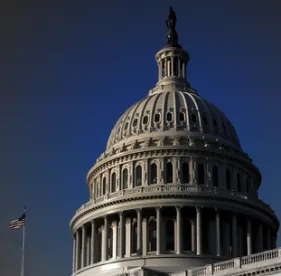Near the midnight hour on March 25, 2020, the U.S. Senate unanimously passed the Coronavirus Aid, Relief, and Economic Security Act (CARES Act) which includes numerous robust tax benefits to businesses in its $2 trillion aid package designed to assist the economy as it endures the effects of the coronavirus pandemic. Provisions under the CARES Act to benefit businesses include:
- Employee Retention Credit for Employers Closure Due to COVID-19
- The Act provides a refundable payroll tax credit for 50 percent of wages paid by employers to employees during the COVID-19 crisis. The credit is available to employers whose (1) operations were fully or partially suspended, due to a COVID-19-related shutdown order, or (2) gross receipts declined by more than 50 percent when compared to the same quarter in the prior year.
- The credit is based on qualified wages paid to the employee as follows:
- For employers with greater than 100 full-time employees, qualified wages are wages paid to employees when they are not providing services due to the COVID-19-related circumstances described above.
- For eligible employers with 100 or fewer full-time employees, all employee wages qualify for the credit, whether the employer is open for business or subject to a shut-down order.
- The credit is provided for the first $10,000 of compensation, including health benefits, paid to an eligible employee.
- The credit is provided for wages paid or incurred from March 31, 2020 to December 31, 2020.
- Notably, this credit does not apply to federal, state and local governments.
- Delay of Payment of Employer Payroll Taxes
- The Act allows employers and self-employed individuals to defer payment of the 6.2% employer share of the Social Security tax they are responsible for paying federally with respect to their employees, and the 6.2% employee share of the Social Security tax required to be paid by their employees.
- The employment tax deferred must be paid over the following two (2) years. 50% of the amount must be paid by December 31, 2021 and the other 50% must be paid by December 31, 2022.
- Modifications for Net Operating Losses
- The Act temporarily repeals the 80% income limitation for net operating loss deductions for years beginning before 2021. For losses arising in 2018, 2019, and 2020, a five-year carryback is allowed (taxpayers can elect to forgo the carryback).
- Expansion of Excess Losses Usage to Pass-Through Entities and Sole Proprietors
- The Act repeals the Sec. 461(l) excess loss limitation. Sec. 461(l) was added to the Code by the law known as the Tax Cuts and Jobs Act, P.L. 115-97, and it disallows excess business losses of noncorporate taxpayers if the amount of the loss exceeds $250,000 ($500,000 for married taxpayers filing jointly).
- The impact of this change is the expansion of the use of excess losses to pass-through businesses and sole proprietors so they can utilize excess business losses and access critical cash flow to maintain operations and payroll for their employees.
- Corporate Alternative Minimum Tax Acceleration Benefit for Businesses
- The corporate alternative minimum tax (AMT) was repealed as part of the Tax Cuts and Jobs Act, but AMT credits were available as refundable credits over several years, ending in 2021.
- The Act accelerates the ability of companies to recover AMT credits to allow a refund sooner thereby providing additional cash flow during the COVID-19 public health emergency.
- The Act modifies the AMT credit for corporations to make it a refundable credit for 2018 tax years.
- Temporary Increase in Limitation on Business Interest
- For tax years beginning in 2019 and 2020, Sec. 163(j) is amended to increase the adjusted taxable income percentage from 30% to 50%. Also, taxpayers can elect to use 2019 income in place of 2020 for the computation.
- This is intended to allow businesses to increase liquidity with a reduced cost of capital, so that they are able to continue operations and keep employees on payroll.
- Qualified Improvement Property Correction
- The Act makes technical corrections regarding qualified improvement property.
- The CARES Act corrects an error in the Tax Cuts and Jobs Act by increasing companies’ access to cash flow by allowing them to amend a prior year return and incentivizes them to continue to invest in improvements as the country recovers from the COVID-19 emergency.
- Businesses are permitted to write off costs associated with improving facilities under Sec. 168 by making it 15-year property instead of having to depreciate those improvements over the 39-year life of the building.
- Temporary Exception from Excise Tax for Alcohol Used in Production of Hand Sanitizer
- The Act waives the federal excise tax on any distilled spirits used for or contained in hand sanitizer that is produced and distributed in a manner consistent with guidance issued by the Food and Drug Administration.
- Effective for calendar year 2020.
It is important to note that the Act will not become law until approved by the House of Representatives and signed by the President which is anticipated shortly. This article will be updated accordingly.





 />i
/>i

